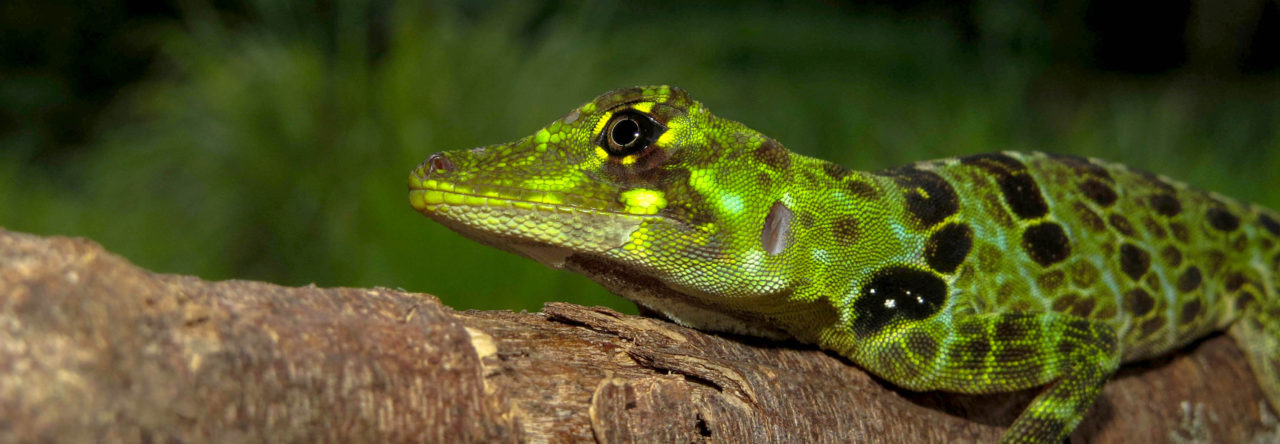
Anolis carolinensis mating. Photo by Michele Johnson from Wade (2012). Insets: Upper, vertebral column of green anole around pelvis and tail; lower, hemipenis musculature.
Juli Wade has just published a review paper in which she sings the praises of anoles as a group to study the integration of behavior, anatomy, endocrinology and molecular mechanisms in vertebrate reproduction. She notes that a number of model systems exhibit, but synthesis is hindered because courtship and copulatory systems have been studied in different groups and, among studies of courtship biology, very disparate structures have been examined (e.g., bird syrinxes, frog larynxes, fish swim bladders) making comparative analysis difficult.
Anoles to the rescue! Wade notes: “Anoles offer some advantages over these other model systems. A long history of research into the hormones, brain and behavior exists for one species, the green anole (Anolis carolinensis), and a substantial amount of data is also available for the brown anole (A. sagrei). These studies indicate that the hormonal regulation of behavior appears quite similar in these two species of anoles. The genome of the green anole has recently been sequenced, which greatly facilitates investigations at the molecular level. Two features, however, provide unique power for the investigation of mechanisms regulating structure and function.
First, three sexually dimorphic systems exist within the same individuals – portions of the limbic forebrain, which control higher level or more motivational aspects of sexual behavior, and both courtship and copulatory neuromuscular systems, all of which lend themselves to investigations in the field and laboratory. Second, more than 350 species of anole lizards span the Southeastern US, Caribbean islands and Central and South America. Information on the behavioral ecology and phylogenetic history of many of these is accessible. And, while limited data on the neural and muscular structures regulating courtship and copulation are currently available, it is clear that species across the genus exhibit beautiful variation in the degree of sexual dimorphism in morphology on a gross level. Anole lizards therefore represent a terrific opportunity for more detailed investigations from an evolutionary perspective.”
- Evolution in Real Time on Lizard Island - March 23, 2025
- Spider Snags Adult Anolis osa - March 22, 2025
- An Homage to the Green Anoles of New Orleans - March 21, 2025


2 Pingbacks